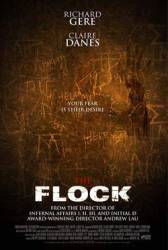
Continuity mistake: In the beginning scene at Vincent's trailer, Errol is looking through the cupboards as he questions Vincent. He comes across an adult magazine, and flips open to a page. He flips another page or two over, and the exact same picture is shown as the first picture he opened to initially.
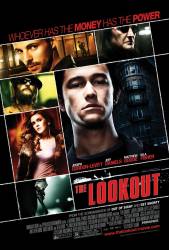
Continuity mistake: When Chris is talking with Luvlee, and Gary has just gone back to the bedroom with a beer, Chris' head changes position without enough time for him to do it, while the camera switches back and forth from Chris to Luvlee.
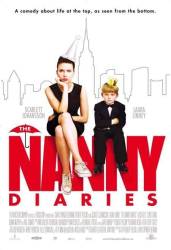
Other mistake: There's a scene at the end of the movie where Annie is sitting looking through some graduate school brochures, and her boyfriend Hayden comes over and hands her a letter from the "5th Avenue Mom" she used to work for. She says she can't read it so he offers to read it to her. The camera shows a close-up of the letter as Hayden starts to read. In the letter it's written that it's been "some time" since we've spoken, but he reads it as "several months."
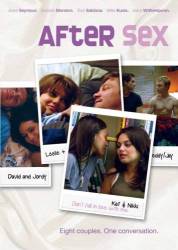
Continuity mistake: When Nikki and Kat are sitting on the floor in a secluded part of the library, there is a single book lying flat on the bottom shelf in front of them, with the binding facing out. In the next shot the book has changed position.
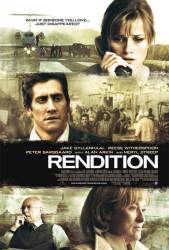
Factual error: In the beginning when Anwar is in Cape Town, South Africa, according to the shadows cast by the men in Anwar's party, it's about 1 pm. He makes a call to Isabella in Chicago, United States when he apologizes for not calling her earlier. Cape Town is 8 hours ahead of Chicago, it would have been pitch dark in Chicago at that time but Isabella is outside in the midday sun playing soccer with Jeremy.

Continuity mistake: There's a scene in Kate's restaurant kitchen where Nick asks Zoe to hold the big bowl of spaghetti he had been eating, and she starts eating it. At one point there's a piece of basil hanging off the edge of the bowl and when the camera cuts back to her, it's gone.
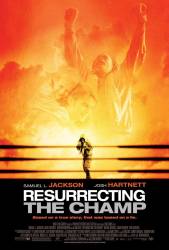
Deliberate mistake: During the final montage, we see Erik and Joyce in bed together, and the next sequence is of Teddy talking to his baby brother. This was to show that they got back together and had another kid. The mistake is that Teddy would've been a year older by that time, and so would've looked a little bigger, although there is also the fact that the actor who played Teddy (Dakota Goyo) was between 7 and 8 for the filming. (01:47:30)
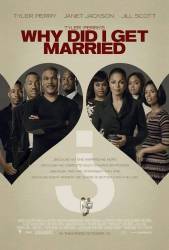
Continuity mistake: After arriving at the mountain cabin, Terry comes in to the bedroom and notices Diane has fallen asleep while working. At first, her laptop computer is screen-up on her lap with the stylus in her hand. But just before Terry leaves, the laptop is screen-down and the stylus is gone.

Continuity mistake: When Sarah is on the beach in a gown and slippers, she takes the slippers off, then they are back on, then seen off, on the sand, again.

Continuity mistake: All wide shots of Hrothgar's hall show it in the outer ward of his fortress, about two hundred metres from the towers on the edge of the cliff, with open ground on three sides and an embankment on the fourth. But later several characters are able to step straight out of the hall onto a balcony that overhangs the cliffs and sea below.

Other mistake: At the end, during the neighborhood fight scene, Monty is punching Joe, but you can clearly see that he is not actually coming in contact with Joe's face.

Factual error: When the two nuns strip to join Lorenzo in the bathtub, they both have bikini tan lines, hardly an everyday occurrence during the 14th century.
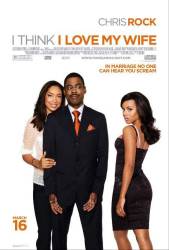
Continuity mistake: When Richard and Nikki get caught in Teddy's apartment the sweater that Nikki is wearing keeps changing from being zipped high to zipped low.
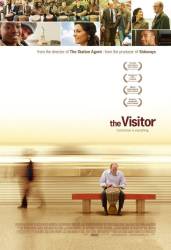
Revealing mistake: In the jazz club, the saxophone player's finger movements don't match what he is playing.
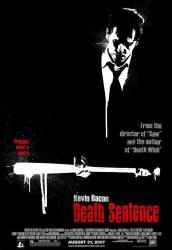
Revealing mistake: When Billy is looking at Nick's driver's license, for sex it says F for female.
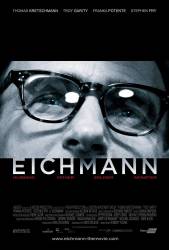
Factual error: During the scene where Captian Less finds out his father was sent to Auschwitz by Eichmann, one of the maps on the wall displays a map of Europe. The map, however, is incorrect, and is a modern day map as opposed to how a map would have looked in 1961. At the time, the Czech Republic and Slovakia didn't exist as separate entities, Germany was not unified, Yugoslavia was yet to dissolve and Ukraine, Belarus, Estonia, Latvia, Lithuania and Moldova would not have appeared as separate states. (00:43:45 - 00:45:35)
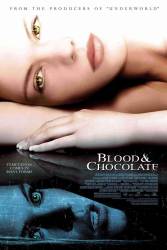
Continuity mistake: When Vivian is walking to meet Aiden for their date, Vivian's dress changes from black to brown.
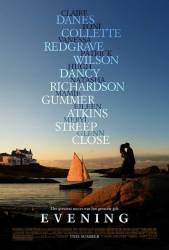
Continuity mistake: When Buddy takes Ann down to the dock to meet Harris, he and Buddy get into the boat and begin getting it ready to sail. As Harris raises the mainsail, we see that the head of the sail is connected to a gaff. In the wide shot immediately following this shot, the head is connected to the mast, and the gaff has disappeared entirely. In all other shots of the boat, the gaff is present. Harris can't have drawn the sail so tightly that the gaff was completely vertical, thereby blending it with the mainmast so as to be imperceptible from a distance, because the shape of the sail would have made that impossible.
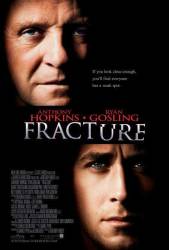
Plot hole: *SPOILER* Toward the end of the movie, Ryan Gosling goes to Hopkins' house where Hopkins is tricked into not only confessing again, but giving Gosling the murder weapon, after they are back in court and Gosling is the acting prosecutor. This would be a conflict of interest due to the fact that Gosling is a witness.
Suggested correction: First, the gun that Beachum took from Crowford's house was not the murder weapon. It was Crowford's unfired gun. He only took it out of the fear of his life. Second, Beachum entered Crowford's house with police supervision. If he plays it by the book, Crowford's confession is valid. In that case, supervising officers will stand witness, along with a recording confirming their testimony. Third, Beachum doesn't need the confession anymore. He was amply clear on that matter.
You are on point for the corrections, but they involve just mostly context/details, don't they? The text of the entry should be polished a little, but the core issue is valid, I think; Beachum would never be the acting prosecutor in a case when he is the key witness as well. If it's a case for the "murder," he has to be on the stand for practically everything; even if we exclude him from the confession to the shooting, as you suggest (and even if it should never be litigated to begin with), he still is integral to the pulling the plug phase (he was literally there as it happened and did everything to prevent it). We can just assume that he will be forced to hand the prosecuting role over to someone else later, and he was just there for 5 minutes to gloat before the movie credits run, but it's kind of funny.
Beachum doesn't have to testify, neither for the confession part nor for the "pulling of the plug." I've already covered the former. For the latter, the fact that the woman is now dead is enough. If necessary, the attending doctors could testify that the woman "would have outlived all of them."
Beachum received the confession under "police supervision," as you called it, which still involved him being the only person in the house with the defendant. You mentioned a recording in the earlier comment; are we just to assume he took one, or is there a visual hint I missed? He was also the person who fought for the court order to the point of being physically tackled in front of the victim's deathbed—so doctors and security staff defiant of such an order would be on trial too, I suppose? Since, again, this 'murder' was not even committed by Crawford. So how would Beachum not be a crucial witness, often the only witness to cover that part of the story?
OK. You want to assume Crawford's confession was for the viewer's benefit entirely, and there was no wiretapping? Fine. The police have the gun now, hence proof of the first actus reus. Hospital staff tackled Beachum, but Crawford can't pin the murder on them when he has two counts of actus reus and twice demonstrated mens rea. Courts always hear such nonsense as "I didn't kill him; I shot him. The bullet and the fall killed him" (Collateral, 2006). Shooting someone is actus reus.
I am sure you are right on the Latin, especially since it's hard to imagine the trial going the way it went the first time around to begin with, and I am not getting into the rabbit hole of what exactly could legally be relitigated. But still and again, what does this have to do with the original point being made, that some other guy would be the one leading the trial, since Beachum would be realistically called in as a witness, even a hostile one? I mean, I honestly didn't think it would be much of a point of contention; it's just something there for the audience. I followed the lead about the 'witness' part the OP ended on, but seriously, a conflict of interest would be invoked just because of all the personal first-hand, hands-on involvement in the facts.
I explicitly told you what happens if the court struck the confession from the record. (The gun happens.) And yet, here you are, saying "Beachum would be realistically called in as a witness"! This correction is turning into a confrontation. Also, don't conflate "involvement" with "conflict of interest." The latter means someone has different de facto and de jure motives. Beachum always had one motive: to convict Crawford.
Far from me to be confrontational, and sorry if I came across that way. I guess I simply don't get it; it happens. Specifically, if I stated again the point about the witness, it wasn't because I was blindly disregarding what you said (check the words immediately after the ones you quoted), but it's pointless to delve further into something that goes beyond the original mistake. You just directly addressed the meaning of conflict of interest, which was what the OP talked about. I simply felt the initial correction posted was not doing that; now it does, and I am not disputing your knowledge on the topic, especially not having any of my own. Cheers.
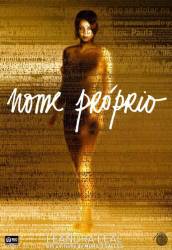
Factual error: This 2007 film, set in 2001, shows several items which didn't exist back then (the first three began circulating in 2002), namely: euro banknotes; 20 Brazilian real banknotes; a version of McAfee VirusScan above 7.0; and a cell phone which, if I've correctly identified it, is Gradiente's GF-690 model, available from 2005. It's the one which belongs to Camila's friend Mari.